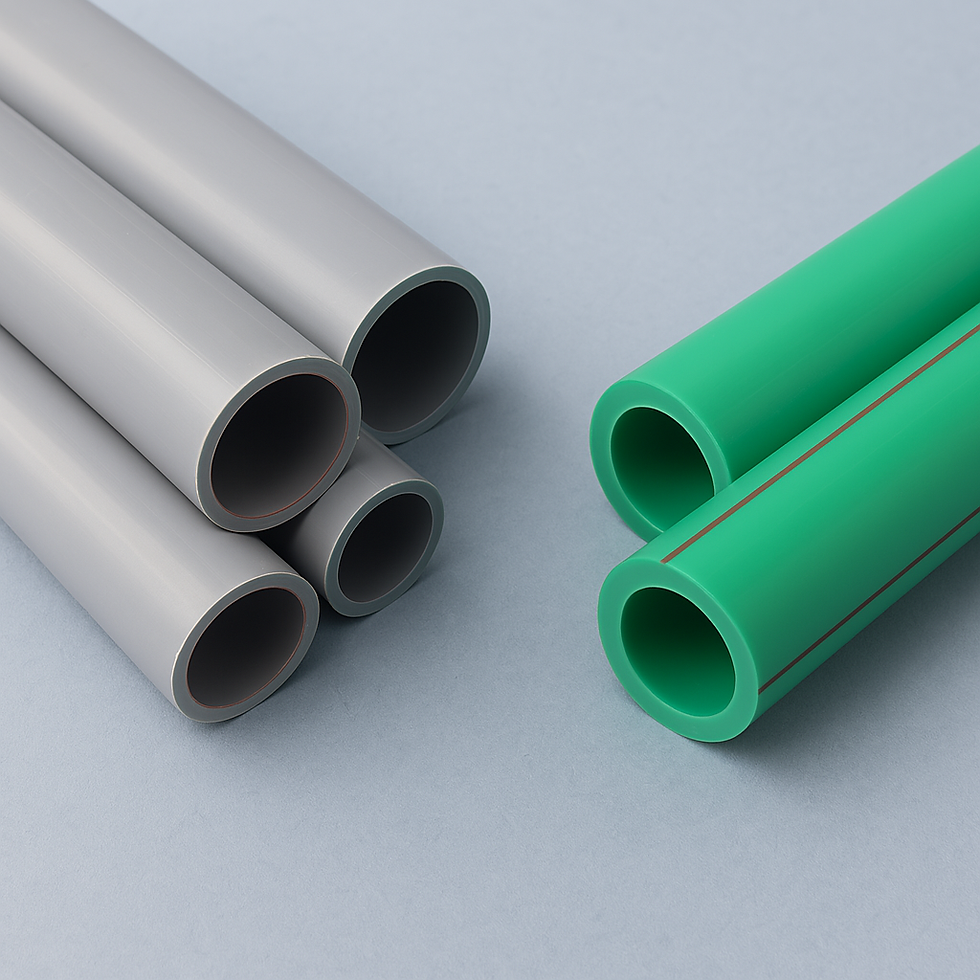Plastic Pipes Are Transforming the Irrigation Industry
- Adamjee DuraBuilt
- Jul 10, 2023
- 3 min read
Updated: Jul 15, 2023

The irrigation business is crucial in the agricultural sector for improving crop yields, preserving water resources, and maintaining sustainable farming methods. The advent of plastic pipes has resulted in a considerable revolution in irrigation systems throughout the years.
Advantages of Plastic Pipes in Irrigation Systems
Durability and Longevity
PVC and HDPE pipes are extremely durable and long-lasting. They are resistant to corrosion, chemical deterioration, and the effects of UV radiation, allowing them to last for a long time even in severe agricultural conditions. Plastic pipes surpass traditional materials such as metal or concrete in terms of resistance to rust, deterioration, and the influence of soil conditions, ensuring long-term irrigation infrastructure.
Efficient Water Delivery
Plastic pipes make it easier to carry water to agricultural fields. Their smooth inside surfaces reduce frictional losses, letting water flow consistently and smoothly. This decreases pressure drops and energy consumption, resulting in more efficient water distribution and irrigation. Plastic pipes help preserve water resources and increase agricultural output by delivering water precisely where it is required.
Flexibility and Ease of Installation
Plastic pipes are extremely flexible, allowing for simple installation around obstacles and in difficult terrain. Because of their lightweight nature, they require less heavy gear during installation, making the operation more cost-effective. Because of the flexibility of plastic pipes, customized irrigation systems may be created to meet the individual needs of fields, orchards, or greenhouses.
Resistance to Chemicals and Agrochemicals
Plastic pipes are very resistant to agricultural chemicals and agrochemicals. They are resistant to the corrosive effects of fertilizers, pesticides, and herbicides, maintaining the irrigation system's integrity. This chemical resistance prevents deterioration and preserves water quality, lowering the danger of pollution and crop harm.
Versatility in Irrigation Methods
Plastic pipes are suitable for a variety of irrigation technologies, including sprinkler systems, drip irrigation, and micro-irrigation. They are readily adaptable to diverse design and watering approaches. Plastic pipes give the flexibility needed to efficiently transport water, whether through above sprinklers or straight to plant roots through drip emitters.
Applications of Plastic Pipes in the Irrigation Industry
Field Irrigation
Plastic pipes are commonly used for large-scale field irrigation, transporting water to row crops, fruit orchards, and vegetable fields. Because of their longevity and effective water distribution, they are perfect for increasing agricultural yields.
Greenhouse Irrigation
Plastic pipes are essential components of greenhouse irrigation systems, giving precise water to plants cultivated in controlled settings. Plastic pipes' flexibility enables for simple installation in limited locations, enabling adequate water supply for greenhouse crops.
Drip Irrigation Systems
Plastic pipes are often used in drip irrigation systems, which distribute water directly to plant roots. Because of their resistance to clogging and capacity to endure low pressure, they are ideal for effective water distribution in horticulture, vineyards, and nurseries.
Landscape Irrigation
Plastic pipes are used in landscape irrigation to supply water to gardens, parks, and public areas. Their adaptability and ease of installation provide effective irrigation in a wide range of settings, supporting healthy plant development and water saving.
Conclusion
Plastic pipes have transformed the irrigation sector, providing several benefits that improve water delivery efficiency, encourage sustainable agricultural methods, and maximize crop yield. Because of their longevity, effective water distribution, flexibility, and chemical resistance, they are the preferred choice for modern irrigation systems. The agriculture industry may save water, increase crop yields, and contribute to ecologically responsible farming methods by embracing plastic pipes. Plastic pipes will continue to play an important role in modernizing the irrigation business as demand for food production grows and water resources become increasingly limited. Plastic pipes, with their dependability, adaptability, and sustainability, pave the way for efficient, productive, and sustainable agriculture.












Comments